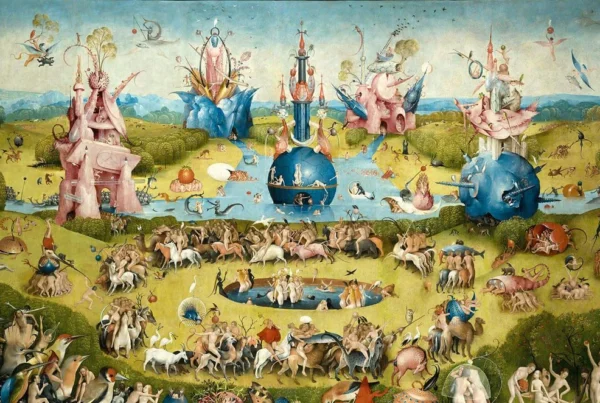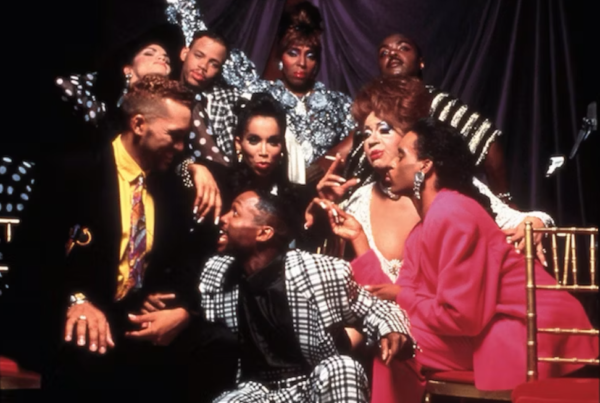By Dan Kanceljak

Photo by Phó Nháy
As I was sitting by the canal in Reims a couple of weeks ago, I thought about the previous stages of my life. Seeking clarity, I wanted to reflect upon what got me to this point and where I should go from here. However, my thoughts were preoccupied with a memory innately alien to my overt consciousness. It felt as if I had been shook from a deep slumber, and now was gazing into a familiar unknown. I felt like Jay Gatsby seeking the green light.
The memory went as follows:
The day was warm, luminous and steamy and shortly after I had gotten on to the bus, just outside Ho Chi Minh City, I noticed a pair of eyes observing me. It was an old woman smiling. After a couple of moments of pious stillness, filled with nothing but the piercing gaze of the woman and the sound of the engine, she pointed at the book I was holding in my hands. Without thinking I gave it to her and, with child-like amusement, she flipped through the pages trying to decipher the meaning. Then she looked at the cover and after stroking every inch of it with her fingers, she handed it back to me with a wide smile.
A few seconds later, realizing that her stop had arrived, she stood up and exited the bus with immense grace. At the very last moment she turned around and waved at me, her wrinkling lips still wearing that smile. Looking back one could have easily thought, having witnessed such joy coming out of a seemingly meaningless encounter, that happiness in Vietnam is a matter of reality. But that couldn’t possibly be true, right?
Either way, I have set myself on a journey to seek the answer.
As a means of academic enquiry, I have decided to embrace the sociological perspective on the issue by delving into the cultural origins of happiness for the Vietnamese people. I have decided to define what happiness is to the Vietnamese.
Even though such an inquiry could be seen as an attempt to generalize and simplify an already abstract feeling, that would not be the case. I do not wish claim that the conceptions of happiness discussed here are held by all members of their societies, but rather, that they constitute the social norms of the society as a whole. These claims are what the society, or the majority of people, aspire for as a whole.
When asking my Vietnamese interviewees to firstly, define happiness in their own terms and secondly, to explain what they thought constituted as happiness for the Vietnamese people, I was always faced with almost identical answers. The defining component for nearly all my subjects was the notion of relationships, most notably, of family.
Thanks to Claude Levi- Strauss, the renowned French philosopher and sociologist, and his essay “The Family”, the explanation for this seemed to be at hand. Specifically, the same reason why marriage has come to be perceived as such a necessity seemed to be applicable to our inquiry. Namely, in the early stages of human development, when men and women were unable to provide sufficient food on their own, working together was an efficient solution. Implying that relationships were an extension of our innate survival instinct.
For instance, imagine a farm. On this farm, an individual is unable to produce enough crops for himself nor enough crops to exchange for wood. Without the wood, he would not survive the harsh winter and without the crops he would not survive a week. The farmer needs a partner.
In Vietnam as late as the 1980s, the agricultural sector was the nation’s largest means of income for three fourths of the population. This means that until quite recently, a vast majority of the Vietnamese were still very much dependent on each other.
So, for its population a short time ago the only way to survive and be happy was to form relationships. This provides the basis for the “thousand-year tradition of close-knit relationships” — as one of the people I interviewed put it.
Equally, it could be said that with Vietnam’s leap into socialism, this sense of community was further perpetuated. Ho Chi Minh and his followers, out of their desire to put an end to colonial rule, had to distinguish themselves from the regime at the time. The adoption of the socialist doctrine, as opposed to the individualistic mindset of its liberal opponents, seemed perfectly logical. This was also congruent to the communal outlook of the Vietnamese populace.
Finally, even though the thesis laid out here might not turn out to be correct, I can state the following with utmost certainty: let us not be blinded by Vietnam’s lack of economic development, but rather embrace the knowledge the nation possesses. Whether it concerns the cuisine, the culture, the nature, the history or its unique societal spirit, we can no longer be (un)blissfully ignorant. For it is clear that Vietnam holds much more than is credited for.
Other posts that may interest you:
- The Trouble with ‘Ecocide’
- Carbon dioxide removal – hit or miss?
- Local Victories for Turkish Opposition — A Sign of Hope?
- Are France and Japan a Mismatch Made in Heaven?
- A Reflection on Dark Tourism
Discover more from The Sundial Press
Subscribe to get the latest posts sent to your email.





